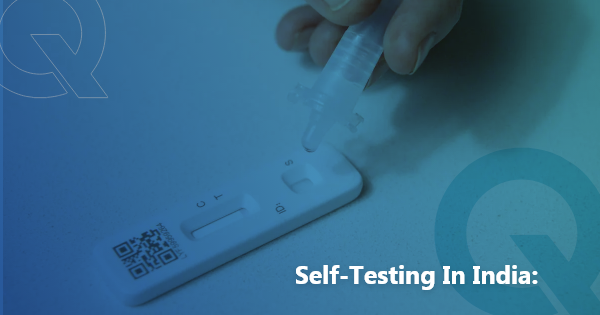~Dr Shivali Ahlawat, Oncquest Laboratories Ltd,
Head- National Reference Laboratory, Gurugram & Head- East & South Regional Labs~
The Indian self-testing kits market has been driven by certain factors like the increasing concerns and general awareness regarding the early diagnosis of diseases. The self-testing market in the country has been valued at $421.49 million in 2021 and is predicted to grow at a Compound Annual Growth Rate (CGAR) of 7.29 per cent during 2023 – 2027 to become a market worth $767.36 million by 2027.
Factors responsible for growth
The widespread turmoil following the outbreak of the novel corona virus has escalated the demand for self-testing kits, mostly due to concerns relating to hospital-acquired infections and-cross contamination. The rising prevalence of the chronic disease across the country and the general populous’ high susceptibility to infectious diseases has been another major booster in promoting the culture of self-testing methodologies.
Most frequent diseases for which people tend to prefer regular self-monitoring include diabetes mellitus, cardiovascular illnesses, COVID-19, renal and urological disorders, etc. Especially, patients suffering from type 1 diabetes – which affects around 76 million people in India – require monitoring their blood glucose levels at regular intervals to alter their insulin dosage. Some of the leading causes of diabetes among Indians like obesity, particularly central obesity and increased visceral fat owing to physical inactivity, as well as high-calorie/high-fat and high-sugar diets can be self-monitored and the symptoms of it can be self-tested, owing to the advancements in medical science.
While the type of self-testing in India can be split into blood glucose testing, pregnancy & fertility testing, cholesterol testing, urine analysis, covid-19 testing and others, blood glucose testing dominates the self-testing market with 39.52 per cent; India has the second-largest diabetic population. However, the rising prevalence of cardiovascular disorders has also led towards a significant increase in the cholesterol testing segment. The ongoing pandemic has also jolted the demand for COVID self-testing kits. Another growing segment is self-testing kits for pregnancy, popular among women all over the world.
Prone to inaccurate results
Based on the intended use, the Indian self-testing market can be further divided into disposable and reusable kits, with disposable kits more frequently used by people due to the increasing health and hygiene concerns. The reusable kits require more care and attention to handle since only disease-specific tests are performed through them.
Though the market of self-testing kits and its acceptance among people is steadily growing, most medical practitioners advocate against self-testing for the diagnosis of diseases; the primary reason being the inaccuracy of the results that might come out of the kits. Also, most patients using self-testing kits are unaware of how to administer the tests through the technical tools and also might find difficulty in interpreting the data, which might result in further inconvenience for the patients. By misinterpreting the data from self-diagnosis, patients can also get misguided regarding a disease or be unable to detect it.
Not good alternative to labs
Specifically, in case of self-diagnosis of COVID-19, many kits had been made available in the market, but the common observation has been that while the kits have shown good accuracy for positive results it has been very much misleading in case of a negative result. Doctors have stated that the rate of false negative has been as high as 10 to 15 per cent and one should always get the results reconfirmed through a RT PCR test even after found negative through self-test.
Even for pregnancy tests, while there had been more accurate results, home pregnancy tests might differ in the ability to diagnose pregnancy in women who have recently missed a period. Thereby, medical experts suggest that even if the test result is negative and the woman still feels pregnant, she should consult her physician and repeat the test in a laboratory.





